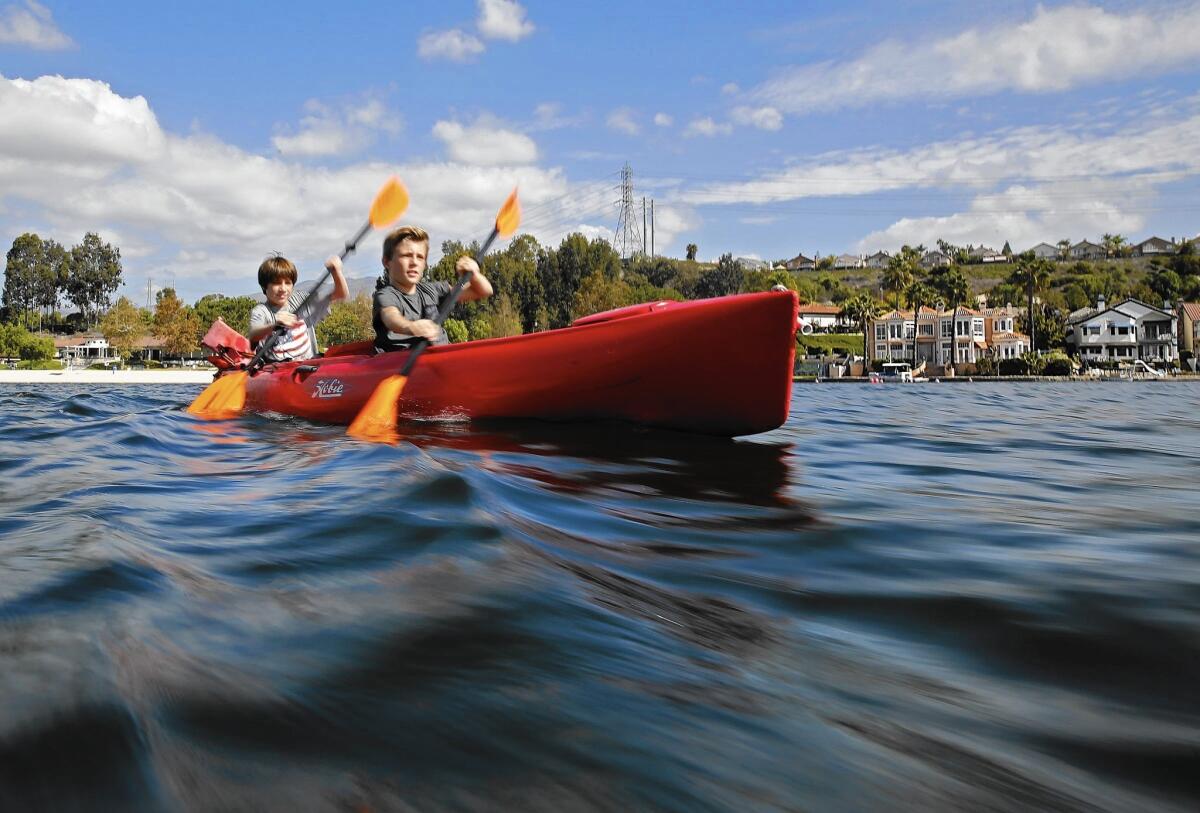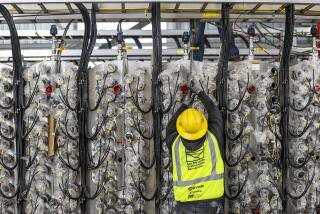Amid drought scrutiny, Lake Mission Viejo to be filled with recycled water

Brothers Keath and Kaiden Sahagun paddle a kayak across Lake Mission Viejo in October.
Members of the Lake Mission Viejo Assn. have approved the use of highly purified recycled water to refill the private lake that has become a hot spot of controversy amid the stateâs relentless drought.
The unanimous vote Tuesday night came as mandatory water-use cuts take effect for urban water districts statewide. Drinkable water has been used to refill the recreational lake since its creation in the 1970s, but the practice has come under fire as California struggles through a fourth year of drought.
âThis unanimous vote is a powerful statement by our members that they want Lake Mission Viejo to be a sustainability trendsetter,â said Kevin Pennington, president of the lake associationâs board.
Talks about alternative water sources for the lake intensified this year as state officials, including Gov. Jerry Brown, urged conservation. On April 1, Brown ordered a 25% cut statewide in urban water use.
Under the State Water Resources Control Boardâs current conservation plan, the Santa Margarita Water District, which provides water for the lake, must cut usage by 24% over the next several months to comply with Brownâs executive order.
During dry years such as 2014, the association purchases more than 114 million gallons of drinkable water -- about 350 acre-feet -- from the Santa Margarita Water District to maintain lake levels. That is enough to serve about 700 families for a year.
âIf we can get the lake off our potable system, thatâs a noticeable difference,â district spokesman Jonathan Volzke previously told The Times. âIn the back of our minds, its always been something that has needed to be addressed.â
The lake association will work with the Santa Margarita Water District to build a $5-million treatment plant that will provide purified water for the lake. The association will pay for the plant, spokesman Laer Pearce previously told The Times.
The districtâs recycled water is already safe to swim in, but lake officials say the proposed âadvanced purified waterâ would be so clean that it could improve the lakeâs overall water quality.
Lake association officials estimate that it will take about a year to bring the treatment plant online.
Follow @ByMattStevens for coverage of the California drought and water.
More to Read
Sign up for Essential California
The most important California stories and recommendations in your inbox every morning.
You may occasionally receive promotional content from the Los Angeles Times.











